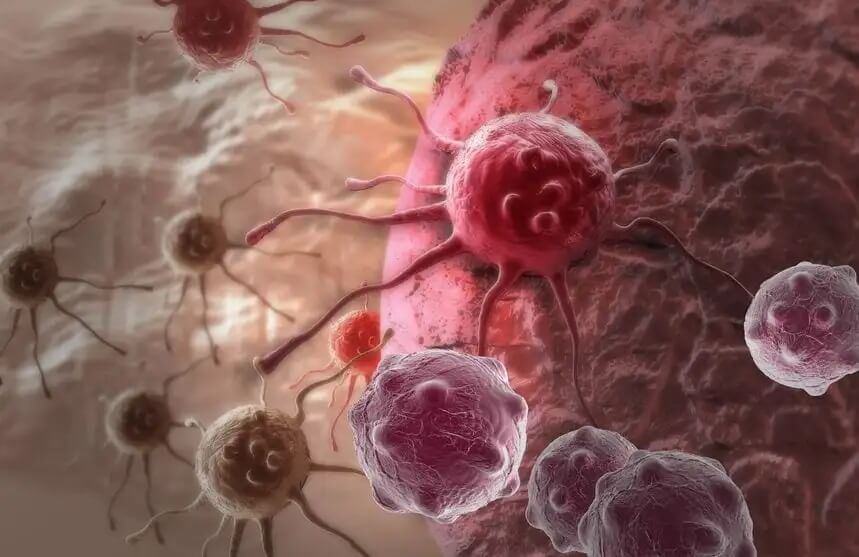
Oleocanthal in EVOO causes a rupture of cancerous cells, releasing enzymes and causing cell death, without harming healthy cells.
A new study has proven that an ingredient in extra virgin olive oil can kill cancer cells.
The results of the study, which will be published in the journal Molecular and Cellular Oncology, were made public on January 23, 2015.
The researchers, nutritional scientist Paul Breslin (Rutgers University), biologist David Foster (Hunter College) and chemist Onica LeGendre (Hunter College) discovered in a lab study that the ingredient, called oleocanthal, causes a rupture of a part of the cancerous cell which releases enzymes and causes cell death, without harming healthy cells. In this way, cancer cells are killed by their own enzymes.
“Oleocanthal is a name for a chemical in extra virgin olive oil (EVOO) that means ‘Stinging Oil Aldehyde’,” Paul Breslin told Olive Oil Times. “It is made by the olive when it is crushed to make the pulp from which the oil is pressed.”
“There are many compounds in EVOO that have a 6-carbon ring structure on them and collectively they are known as phenolics,” Breslin added. “These compounds are collectively good anti-oxidants preventing oxygen pore-radicals from forming and they also tend to be anti-inflammatory. Oleocanthal has been shown to interfere with processes associated with many types of inflammation, Alzheimer’s disease, and cancer formation and growth.”
The researchers discovered that oleocanthal caused cancer cells to break down and die very quickly; within 30 minutes, instead of the 16 to 24 hours it takes for programmed cell death, known as apoptosis.
Though the scientists already suspected that oleocanthal can kill cancer cells, this is the first time a study examined how this occurs.
“There are many studies that show that oleocanthal can interfere with cancer processes and growth pathways. It has also been shown in live animals that oleocanthal can shrink tumors in mice,” explained Breslin. “What is not known is whether these are all separate effects of oleocanthal on cancer or whether there is perhaps an upstream event that triggers them. We have what may be an upstream event that is a novel phenomenon to be described in that we are opening up the lysosome with oleocanthal inside the cell and releasing toxic enzymes that kill the cell. This phenomenon is called Lysosomal Membrane Permeabilization or LMP.”
“We wish to look at whether this is why tumors are shrinking in mice in the presence of oleocanthal. In our study, David Foster and Onica LeGendre focused on breast, pancreatic, and prostate tumor cells and showed they could be killed by LMP but we did not kill three kinds of healthy non-cancerous cells,” Breslin said.
Researchers would like to take the study outside the lab and investigate the effectiveness of oleocanthal to kill cancer cells and tumors in living animals.
This study confirms the anti-oxidant and anti-inflammatory qualities of extra virgin olive oil and the benefits of diets rich in olive oil like the Mediterranean diet to good health.
Source: Olive Oil Times


